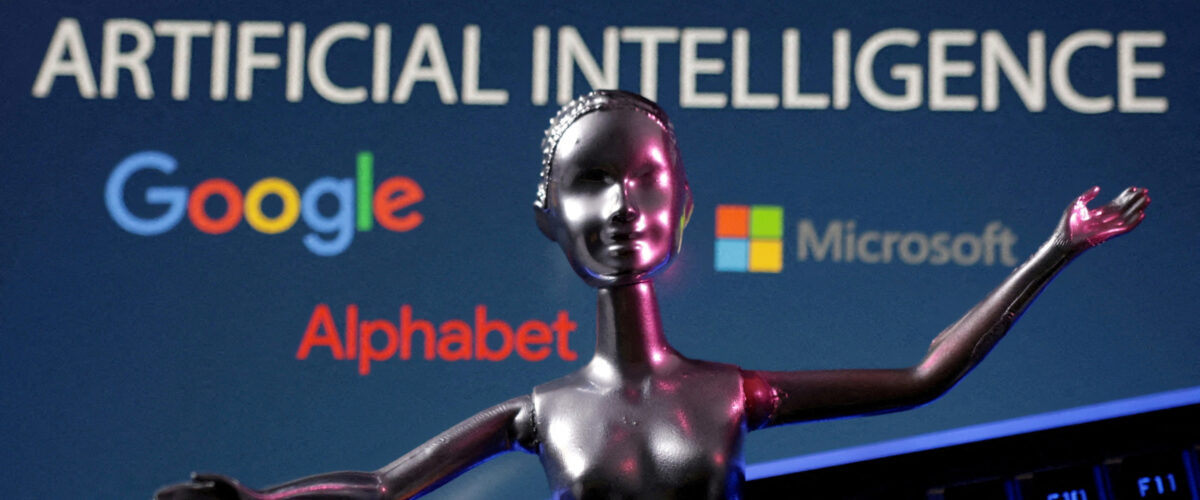
Ad buyers told Reuters that Alphabet’s (GOOGL.O) Google and Microsoft’s (MSFT.O) are placing advertising into AI tests without offering a choice to opt out, a strategy that has already irritated some brands and risks additional criticism from the industry.
The two computer behemoths are racing to update their search engines with artificial intelligence capable of producing textual replies to open-ended questions. According to research company MAGNA, this method will upend how advertisers reach consumers through advertisements on search results, a sector that is expected to expand 10% to $286 billion this year.
According to Microsoft, the firm is testing advertisements in the Bing AI chatbot, which began rolling out to customers in February, by moving some standard search ads and inserting them into the AI replies.
In a May interview, Google’s general manager of advertisements, Jerry Dischler, stated that the tech firm will also utilize existing search ads to experiment with ad placements within AI search snapshots, an early-test feature known as Search Generative Experience that was made accessible last month. Google stated that marketers cannot presently opt out of the test.
Both businesses stated that they are in the early phases of testing advertising using generative AI capabilities and that they are actively engaging with advertisers to get feedback.
Some advertisers are concerned that their marketing resources are being spent on services that are only available to a small percentage of consumers, according to ad buyers. Advertisers often desire control over where their ads show online and are wary about appearing next to improper or inappropriate material.
Microsoft and Google both stated that current safeguards on their search engines, such as lists of blacklisted phrases that prevent advertisements from displaying on such queries, would apply to their AI search tools as well.
The two businesses have invested billions on generative AI, making income from the technology critical. This includes investments in other AI firms, such as Microsoft’s multibillion-dollar bet in OpenAI, the creator of the popular ChatGPT, and Google’s $400 million position in Anthropic, an OpenAI competitor.
According to Jason Lee, executive vice president of brand safety at Horizon Media, a media firm that has worked with brands such as insurer GEICO and Corona beer, testing new ad spots without obtaining agreement from companies is a problematic practice for advertisers. Another ad buyer at a big ad agency agreed that the practice was not industry norm.
According to an ad buyer familiar with the situation, some significant sponsors temporarily dropped their ad expenditure from Microsoft in reaction. Among them, Wells Fargo (WFC.N) continues to keep a portion of its advertising spend away from Microsoft, according to the source.
Wells Fargo did not reply to a comment request.
Lynne Kjolso, Microsoft’s vice president of worldwide partner and retail media, stated in an interview that the firm sought to make the launch of the new Bing ad formats as “seamless” as possible for advertisers, without adding more effort.
According to her, Microsoft just released hotel advertisements in the Bing chatbot and is working on introducing ads for other areas such as real estate.
advertising’ worries are part of a bigger conflict, as digital platforms increasingly offer AI solutions that might provide better results for advertising but require them to give up some control over their ads.
“This is not the first time that Google and Bing have expanded their networks while restricting control for advertisers,” said Samantha Aiken, paid search supervisor at marketing firm Code3.
Transparency reports, according to Kjolso, have been a top request from ad agencies, and Microsoft’s product teams are “working on it with priority.”
“We are absolutely thinking through what additional levers and controls we need to be able to provide to advertisers,” she said, adding that sales teams were actively working with some companies to alleviate any worries about where their advertisements were showing.
Two media buyers from large ad agencies expressed concerns about how the search giants would prevent advertisements from appearing on AI replies that contained “hallucinations” or incorrect information.
According to Kjolso, Bing’s Web information can operate as a “grounding” mechanism for large-language models, reducing the possibility of hallucinations.

Post a Comment